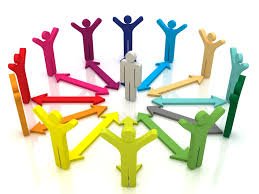Merriam-Webster’s dictionary lists several definitions for the word relationship. The term is generally used to denote family ties, but it’s also used as a state of connecting or binding participants. Actions that bring people together and bind them in a common cause are key to building effective relationships.
I was first introduced to the statement ‘leadership is a relationship’ in the book The Leadership Challenge by James Kouzes and Barry Posner. The authors go into great detail about the importance of building camaraderie among the people you are leading. When you have a meaningful relationship with another person you work more effectively together. You have a common goal and a consistent purpose. Your efforts are channeled toward the same common outcome.
Effective leaders recognize the importance of building solid relationships. They spend time focusing their efforts in key areas that will build connections with the people they lead. Here are three simple tools that great leaders use to improve their working relationships:
- Listen: Leaders let other people talk and they pay attention to what they’re saying. They remove anything that would distract from their conversations and focus on what people are trying to convey.
- Understand: They appreciate what other people do and value their contributions. Leaders are not only open to new ideas but are also eager to learn new things. They know that taking the time to understand where people are coming from will pay dividends in the long run.
- Acknowledge: Leaders acknowledge the contributions of others. They are quick to give credit to others for their successes. They celebrate achievements and delight in the accomplishments of their team. They know that people will be more motivated to work hard and try new things if their leader acknowledges their efforts.
What are you doing to build effective relationships?
Source: Michael Ray Hopkin – Lead on Purpose





